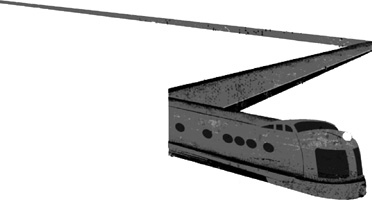

Toño and I, we see each other when we can. He teases me with a “How is your girlfriend?” when he can. Also, when we are together we call home. One worry for me is that, so far away, the dear voices will grow weaker weaker. Just fade like clouds thinned in wind. But no. When I close my eyes, the voices, the faces, they grow strong. Especially Abue’s.
Aside from Toño and Sinaloa and a few calls to Cejas, I keep to myself. Here in this Los Angeles, impossibly enormous place, I am an island. Loneliness wraps me like a dark sarape, but I spill my heart to nobody.

Toño’s neighbor, the Japan man, is a withered-up one with about one hundred years on him, I believe. A whitehair, as I call him. Like me. Whenever I see him he is always sitting alone in his chair on his tiny porch. I have never seen him with a visitor, not even a neighbor. Deciding that he is not a spy as I first thought, I begin to nod when I go by. At least I think I do. A little dip of the head. The Japan man, he does the same. A nod. A bow really.
He bows to me, Beast Rider alone, swallowed by L.A.! I cannot ignore a bow. Among many things, Abue and Papi have taught me courtesy. Next time I pass, I Manuel Flores, truster of nobody, most of all not strangers, I lift my hand in the littlest wave, like a tiny small flag. This man, he waves back, and again he bows.
Soon I am stopping—at first a little, then longer and longer—to visit the man who I learn is Mr. James Ito and who I come to think of as “my viejito.” He bows. I bow. Respect we now show always upon meeting.
He is full of years and wrinkles and also full of solemnness. Yet there is something else about this old one, so bone thin but wire-tough. Always a bit ceremonious, he is the kind of person who causes you to use his full complete name.
Mr. James Ito, sí a most solemn one. At first speaking but little. But then he talks more, a slow river flowing itself along. Pretty soon I make a decision. When I am not working I will tell stories about my family and my home to this old one, to keep him from feeling alone.
Life is a twist. My plan to share stories with Mr. James Ito turns itself inside out. My stories fade away, for he begins telling stories to me. Of when he was young. Of his still-alive dreams. “We always need dreams,” he says. These visits soften my own loneliness.
My viejito tells of walking in the beautiful mountains of Oregon. He tells of gardens in a way that I know he loves the earth. Then I drift off, thinking of our milpita far away. And of my family. Once Mr. James Ito tells a story in which our lives cross, though he does not know it. He says that long ago, in his green years, he and his friends were in a car, rattling along fast fast when in the distance came the long mourn of a train. At this, I stiffen.
“We were teenagers and crazy from drinking,” says my viejito, “and just crazy from being young.”
I am stunned that such a one would drink spirits, but I keep this thought inside myself.
The tracks were right ahead. “Faster! Floor it! We can beat it!” The train was racing. The car was racing. Then with great suddenness—two friends were dead.
“I have a scar,” Mr. James Ito tells me in full solemnity. “It is long and white,” he explains, “cross-hatched where long ago stitches stabbed in. Like railroad tracks.” I would like to see it, but do not ask. He does not offer to show it either, being very full of dignity. Like a teller of fortunes he then gazes into my eyes darkly. “Avoid trains, young Manuel,” says Mr. James Ito, speaking about his experience. But of course it is too late for that.
We are both scarred by trains.
This same night I am awakened by a shout. Mine. I am panting, wet with sweat and trembling like a moth. Shards of broken-bottle glass tumble down down in slow motion through the vision I have had. One shard is etched with a machete blade. Another with a brand, a horned B. Some with the vicious faces of bandits. And polis. Toño is not home yet. For a long time I quake in the dark.